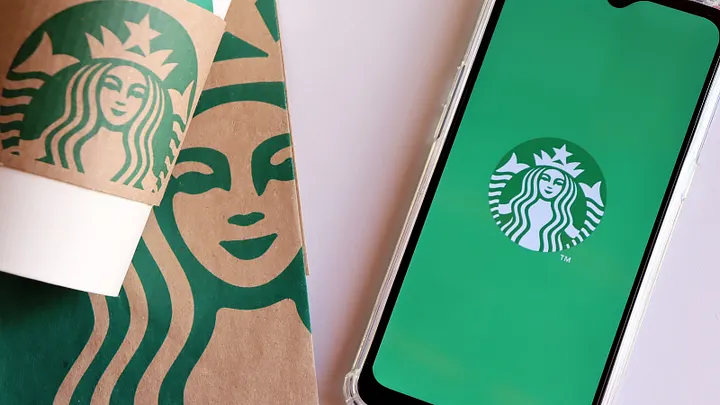 |
| Case Studies: Analyzing Successful Marketing Campaigns That Used AI |
Introduction
Artificial Intelligence (AI) is rapidly transforming the landscape of digital marketing. In recent years, numerous brands have harnessed AI to create innovative, data-driven campaigns that resonate with their audiences.
This blog post will dive deep into case studies of successful AI-driven marketing campaigns, offering insights into how AI tools can be leveraged to improve customer engagement, personalization, and conversion rates. We will also discuss how these campaigns align with the latest SEO practices, including voice search optimization, user experience, and local SEO.
The Rise of AI in Marketing: A Brief Overview
AI in marketing has revolutionized how brands interact with customers. From chatbots to predictive analytics, machine learning, and natural language processing, AI tools enable businesses to personalize customer experiences at scale. According to a 2023 study, AI-driven campaigns increased conversion rates by up to 30%, with more than 60% of marketers now using AI tools in some capacity.
Case Study 1: Starbucks - Leveraging Predictive Analytics for Personalized Recommendations
 |
| Image source: Medium |
related : Predictive analytics, personalized marketing, customer data
Starbucks has long been at the forefront of digital innovation, and its use of AI is no exception. The Starbucks app uses AI-driven predictive analytics to suggest customized beverage options based on customers' past orders, local weather, and even the time of day. This level of personalization has significantly increased customer engagement, with users of the app generating up to three times more revenue than non-app users. Moreover, Starbucks integrates AI into its digital marketing efforts to optimize the timing and content of its promotional messages.
SEO Takeaway: The use of predictive analytics not only personalizes the customer journey but also enhances local SEO, as Starbucks tailors offers and suggestions to users based on geographic location.
Case Study 2: Sephora - Enhancing the Shopping Experience with AI-Powered Virtual Assistant
Related Topics : AI chatbot, customer engagement, virtual assistant
Sephora, a global leader in the beauty industry, took AI to the next level by implementing chatbots and AI-powered virtual assistants on its website and mobile app. These AI tools help customers find products, provide personalized beauty advice, and answer FAQs. The chatbot uses natural language processing (NLP) to deliver a seamless shopping experience.
As a result, Sephora saw a significant improvement in customer satisfaction and online sales. In fact, AI-driven recommendations helped increase conversions by 11% and improved product discovery, a vital factor in SEO optimization.
SEO Takeaway: AI chatbots not only improve user experience by providing quick answers but also enhance the quality and originality of content, boosting SEO rankings by reducing bounce rates and increasing dwell time.
Case Study 3: Coca-Cola - Using AI for Content Creation and Social Media Strategy
related : AI content creation, social media, brand engagement
Coca-Cola adopted AI to generate real-time content for its social media platforms. By analyzing user-generated content and trending topics, Coca-Cola's AI-driven algorithms helped the brand create personalized content that resonated with its target audience. This strategy resulted in a significant increase in social media engagement, with some campaigns generating a 70% increase in user interactions.
Additionally, Coca-Cola utilized AI to test different versions of advertisements to see which performed better, optimizing both video content and written posts for maximum impact.
SEO Takeaway: High-quality, relevant content is key to SEO success. AI can help create content that is not only engaging but also SEO-friendly, incorporating relevant keywords and adapting to voice search queries.
Optimizing AI-Driven Campaigns for Modern SEO
Successful marketing campaigns that use AI are not just about technology. To ensure their campaigns appear high on search engine results, companies must optimize for modern SEO standards. This includes voice search optimization, mobile-first indexing, and local SEO strategies.
Voice Search Optimization
AI and voice search go hand in hand. With more consumers using voice assistants like Siri, Alexa, and Google Assistant, it's crucial to optimize content for voice queries. Long-tail keywords, conversational language, and question-based queries should be integrated into your content strategy.
User Experience (UX) and SEO
The user experience has become an increasingly important SEO ranking factor. AI can help improve UX by offering personalized recommendations, enhancing site navigation, and reducing page load times. Studies show that a one-second delay in page load can decrease conversions by 7%. AI-powered solutions, like content delivery networks (CDNs) and image optimization tools, are essential for creating fast, responsive websites.
Local SEO
As seen in the Starbucks case study, local SEO is critical for businesses with physical locations. AI can help brands optimize their local listings, manage reviews, and provide location-based offers. This increases the chances of appearing in local search results, particularly for mobile users searching "near me."
FAQs About AI in Marketing Campaigns
Q1: How does AI improve personalization in marketing?
AI analyzes large datasets to identify patterns in customer behavior, allowing businesses to deliver tailored recommendations, emails, and ads that are more likely to convert.
Q2: How can AI be used to optimize content for SEO?
AI tools can help marketers identify trending keywords, optimize for voice search, and create high-quality, relevant content that improves organic search rankings.
Q3: Is AI suitable for small businesses?
Absolutely. Many AI tools are scalable and cost-effective, making them accessible for small businesses that want to improve their marketing efforts and SEO without large budgets.






Thank you for engaging with us! Please adhere to our comment policies, which aim to create a positive and constructive environment for discussing marketing topics. We welcome your valuable contributions, but we ask that you respect others' opinions and refrain from any offensive or inappropriate language. All comments are subject to review before publication. We look forward to your thoughts and insights on marketing strategies and innovations!